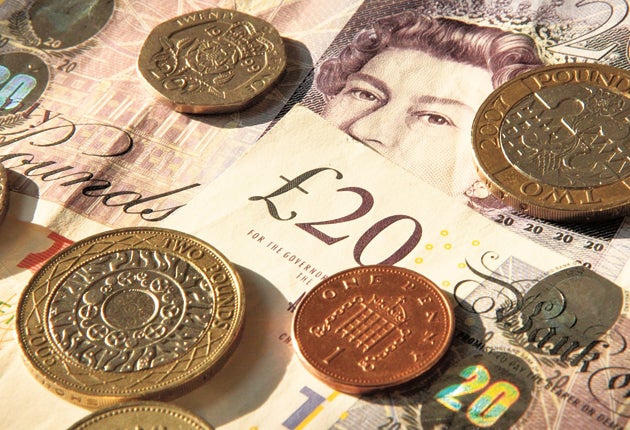Fixed or variable, ISA or bond?
With the base rate likely to rise soon, where you put your cash will involve risk.

If you're looking to use up this year's individual savings account (ISA) allowance before the 5 April deadline, one crucial question will be whether to lock your money away in a high-paying bonds and lose your tax-free allowance, or plump for a best-buy variable ISA and wait for a better fix to come along later. Fixed-rate savings are getting a bad press at the moment but with many of them paying premium rates, can you afford to wait?
Skipton building society is still top of the pile for fixed-rate cash ISAs paying 4.5 per cent fixed for five-years. The best of the easy-access accounts – the AA's Internet Access ISA – falls well short of this at 3.35 per cent.
"Rates on most savings accounts are still poor so fixed-rate accounts are a great way to boost the return you receive on your savings," says Ed Bowsher, the head of consumer finance at Lovemoney.com.
For non-ISA savings, there are two new inflation-linked bonds from BM Savings, a division of HBOS, one of which pays the Retail Prices Index plus 0.75 per cent over three years and another which pays RPI plus 1.5 per cent over five years. With RPI recorded at 5.5 per cent in February this would equate to an impressive annual return of 6.25 per cent or 7 per cent, although it will actually be April 2012's inflation figure that decides the first rate of return.
Despite such attractive rates, many experts are advising against fixing at the moment, pointing out that the Bank of England base rate, which is still set at a record low of 0.5 per cent, can only go in one direction. High inflation is piling on the pressure for an imminent interest rate hike, but it doesn't necessarily follow that you will miss out on significantly better rates when it does.
First, with the economy so fragile, the base rate may rise and fall unpredictably over the next few years. Ultimately, you have to take a punt on how quickly you think interest rates are going to rise but there is every chance they will remain fairly low for several years.
Second, there is no guarantee that if interest rates do rise, the banks and building societies will be in a rush to pass on the increase to savers. This could mean that you wait in vain for higher rates and would be better off taking advantage of a decent fixed rate now, which will also give you a steady return for a set number of years.
"A rise in the base rate doesn't automatically feed through to higher rates on all savings accounts. Just as important is whether a bank needs to pull in extra cash to fund its lending. If the base rate rises, rates on some accounts may stay unchanged, and then people on a fixed rate account might be rather chuffed," says Mr Bowsher.
Another benefit to fixing is that you don't have to worry about any sneaky temporary bonuses, which all of the top variable accounts include. For example, AA's best buy includes a 1.65 per cent bonus for the first 12 months and Santander's Flexible ISA has a 2.8 per cent bonus, also for a year, bringing the overall rate to 3.3 per cent.
Once the introductory periods come to an end, most variable accounts revert to a measly rate so if you aren't prepared to chase rates and switch regularly when introductory offers fall away, a bond is an easier option. As long as you are happy to tie your money up, you can deposit your cash and simply forget about it, safe in the knowledge that the rate will not change until the end of the term.
"After leaving aside an amount in an immediate access account to meet short-term expenditure and provide an emergency fund, the balance of your cash holdings could be tied up for longer to boost the return.
"A fixed-rate account will improve the interest rate providing you do not touch your savings," says Danny Cox from independent financial adviser Hargreaves Lansdown.
How risky a bond is depends largely on how long you decide to fix for. Broadly speaking, for every year longer you tie up your money, you can currently earn an extra 0.5 per cent interest, but you are also increasing the risk of missing out on considerably improved rates in the future.
Expert View: Danny Cox, Hargreaves Landsdown
"Fixing your savings rate provides certainty. You can be sure of the rate of interest you will earn, regardless of what happens to the economy. However, this can act positively and negatively and if you tie up for too long, you risk the interest rate on your savings lagging behind."
Join our commenting forum
Join thought-provoking conversations, follow other Independent readers and see their replies
Comments